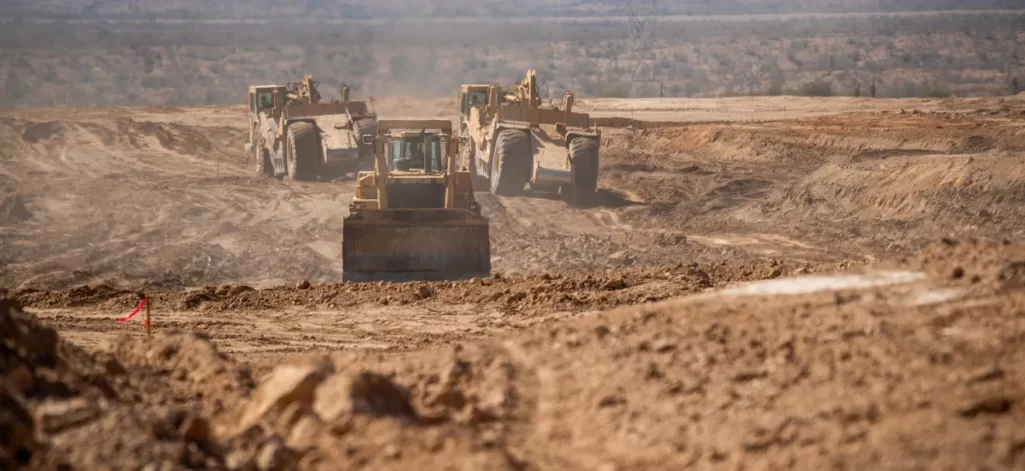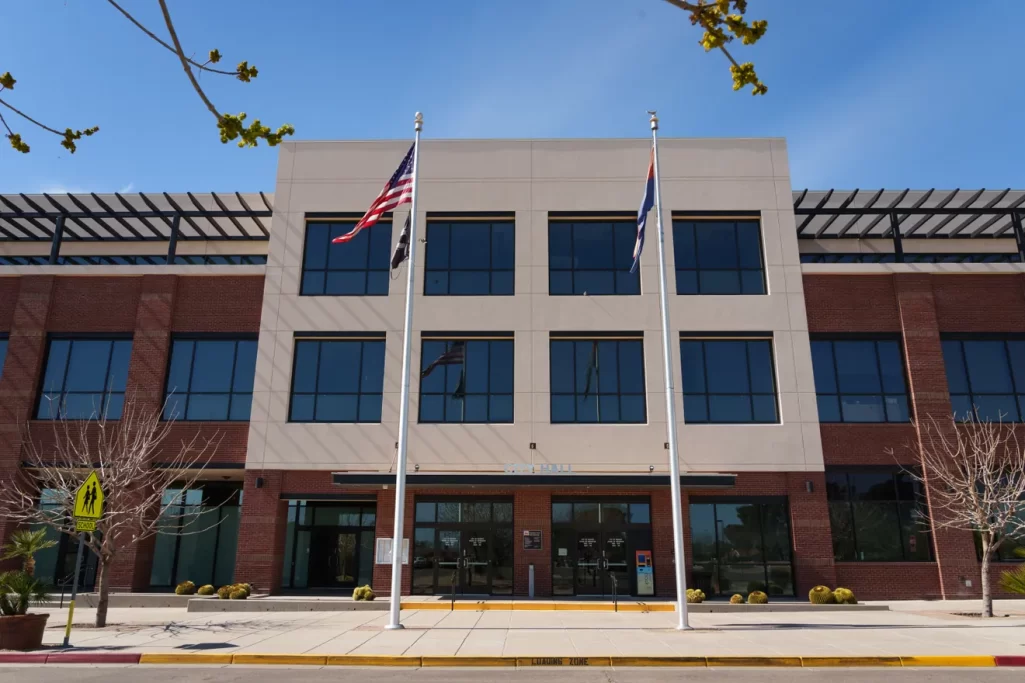Buckeye gave special break to developer of massive Teravalis project, lawsuit says
A sewer pipe manufacturer has sued Buckeye over allowing the developer of the largest master-planned community in Arizona to use a different material, alleging the city broke its own laws by granting an exception for the project.
At issue in the case is whether city building codes mandate clay sewer pipes or allow for durable heavy-duty plastic ABS or PVC lines, and whether the city cut corners to give a powerful developer a special break.
Phoenix-based Building Products Co. LLC, a clay pipe manufacturer, brought the suit against Buckeye, which was heard in Maricopa County Superior Court early this month.
It involves Howard Hughes Corp.’s master-planned community Teravalis, which is embroiled in an unrelated legal dispute with the Arizona Department of Water Resources. At buildout, Teravalis could become as large as Flagstaff.
In August, the city approved the use of PVC plastic piping, for the village of Floreo, the first village that will be constructed of Teravalis.
Building Products Company claimed in court documents that Buckeye’s city code requires clay pipe. The complaint cites a 2020 resolution requiring clay piping in projects throughout the city.

Construction vehicles at the construction site of Teravalis, a premier master planned community, in Buckeye on Oct. 5, 2023.
Buckeye initially adopted gravity sewer standards involving clay pipes in 2012, and the standard was replaced by new gravity sewer design standards in 2020. The new standards also include a clay pipe standard.
But plastic piping is easier and cheaper to install and generally regarded as more durable. Clay pipes can crack, get clogged or be broken by invasive roots or subside. Contractors generally consider plastic PVC pipes more durable than the more antiquated clay pipe systems, although clay pipes may be considered more environmentally friendly and also avoid corrosion.
In its legal reply to the lawsuit, Buckeye asked the court to dismiss the case. It argued the city code allows the city engineer to approve the use of alternate materials. The city also stated in court documents that the Gravity Sewer Engineering Design Standards state that the city engineer can approve “variances” to the requirements. The code also contains a clause stating the city engineer can modify the standards at any time.
It is unclear if the Howard Hughes Corp. sought a variance or the circumstances in which it was granted. The Arizona Republic has submitted a public records request to find out, but Buckeye declined to answer why the variance was given.
In an email included in court documents, the Howard Hughes Corp. told Building Products Company that it had received approval from the city of Buckeye to use plastic PVC pipes, which would save the company money on construction costs.
When the case went to court, Buckeye attorneys said Building Products Company doesn’t have a legal argument, because a design standard is not necessarily a requirement but a preference.
“There has not been established some type of illegal or arbitrary or capricious action on the part of the city,” Joe Estes, a lawyer representing Buckeye, argued in court.

Buckeye City Hall as seen on Feb. 18, 2023.
Buckeye City Attorney Scott McCoy said during the hearing that it’s important the city has the flexibility to use different materials, especially after recent supply chain shortages. While Buckeye’s city standards express a preference for clay pipes over other materials, there isn’t anything banning the use of other materials.
The city also argued that Building Products had no legal standing to bring the case because it is headquartered in California.
However, Building Products Company has done work throughout the Valley since the 1960s, according to court documents. That includes some work done for the city of Buckeye. Building Products Company has a factory in Phoenix, and Arizona Corporation Commission records show the company is legitimately registered to do business here as an out-of-state company.
Clay pipes have been used for thousands of years, and Building Products Company claims that they are more durable than plastic pipes. The company contends that, while clay pipes may be more expensive initially, they are cheaper in the long run because they require less maintenance than plastic pipes. And because the burden of maintaining municipal sewage systems falls on the city, the developer has an incentive to try to pursue the product that costs less.
In an interview with The Arizona Republic, Building Products Company general manager of sales Jeremy Haskins said the use of plastic PVC pipes ends up harming residents because the cost of maintenance, which comes from taxpayers, will ultimately fall on the city.
Ultimately, Haskins said the goal is not to delay development: the company simply wants the city to stick to its clay pipe standards.
While judges typically have 60 days to make a decision about advancing or dismissing, Maricopa County Superior Court Judge John Blanchard said he would expedite the process.
Both the city of Buckeye and the Howard Hughes Corp. declined to comment for this article.
Reach the reporter at ahardle@gannett.com or by phone at 480-259-8545. Follow her on X, formerly Twitter: @AlexandraHardle.
